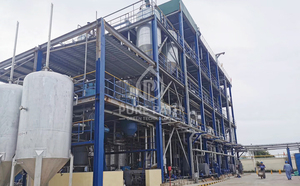Cutting-Edge Techniques in Used Engine Oil Recycling
Corps
The Imperative of Used Engine Oil Recycling
Used engine oil, a byproduct of automotive activities, poses significant environmental challenges if not managed effectively. However, the advent of advanced recycling techniques is reshaping the narrative, turning used engine oil from a potential hazard into a valuable resource.
- Advanced Filtration Technologies:
Cutting-edge filtration technologies stand as pillars in the realm of used engine oil recycling. High-tech filters and purification processes are employed to remove impurities, contaminants, and debris from the used oil. These advanced filtration methods ensure that the recycled oil meets stringent quality standards, paving the way for its safe and effective reuse.
- Vacuum Distillation Processes:
In the quest for precision and efficiency, vacuum distillation has become a cornerstone in used engine oil recycling. This process involves distilling the used oil under reduced pressure, lowering the boiling points of contaminants and allowing for the separation of impurities. Vacuum distillation not only enhances the quality of the recycled oil but also minimizes the energy required for the distillation process.
- Hydrogen Treatment for Decolorization:
To achieve higher purity levels in recycled engine oil, hydrogen treatment is increasingly being employed for decolorization. This cutting-edge technique involves the use of hydrogen to remove color-inducing impurities, resulting in a clearer and more refined recycled oil product. This not only improves the aesthetic qualities of the oil but also contributes to its overall quality.
- Solvent Extraction Methods:
Solvent extraction techniques have become instrumental in the extraction of contaminants from used engine oil. Specialized solvents are used to selectively dissolve and separate impurities, leaving behind a cleaner oil product. This method is particularly effective in dealing with stubborn contaminants that may be challenging to remove through traditional means.
- Re-refining Processes:
The pinnacle of sustainability in used engine oil recycling is re-refining. This advanced process involves thorough purification and removal of impurities, transforming used engine oil into a product that meets or exceeds the standards of virgin oil. Re-refining not only extends the lifecycle of the oil but also significantly reduces the environmental impact associated with traditional disposal methods.
Embracing a Greener Future
These cutting-edge techniques in used engine oil recycling signify a paradigm shift in environmental responsibility. By employing advanced filtration, distillation, hydrogen treatment, solvent extraction, and re-refining processes, the industry is not only mitigating the environmental impact of used engine oil but also actively contributing to a circular economy.
As we navigate the complexities of a changing world, the integration of these advanced techniques in used engine oil recycling is a beacon of hope for sustainable resource management. Embracing these innovations not only reduces the demand for virgin oil but also champions the cause of environmental conservation, propelling us towards a greener and more sustainable future.












commentaires